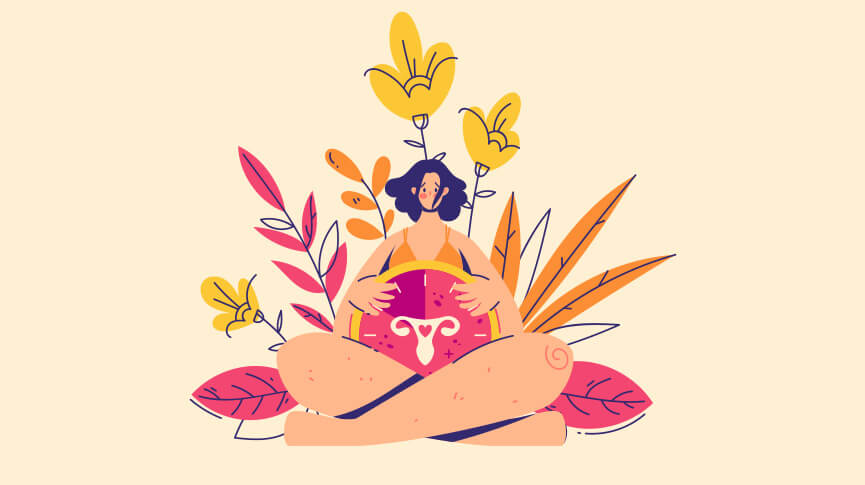Free Audio Book: Listen and Learn How to Not Feel Ashamed About your Period

Having the first period is a normal part of growing up and should never be an obstacle for young women in reaching their life goals and ambitions. But still… it is. Although we live in the 21st century, period stigma is still around, and girls are still afraid and ashamed to talk about body changes. In modern society, the period is called by various names, but never for what it is – a period or menstruation. Even in front of parents.
That is why, Intimina will celebrate this year’s Women’s Day, trying to speak out on behalf of all the girls, to change consciousness and point out a problem that the world consciously or unconsciously still ignores. By informing and educating people, and empowering young women to feel free of any cultural taboos and stigma – with a free audiobook that explains completely natural things such as menstrual cycle, period pain, women’s body, period symptoms, health, birth control, sex…
Free audio Book for Boys and Girls!
Before Intimina’s team made their first step on this subject, they conducted a survey to see the what is the exact situation on the market. They talked to 1000 girls aged 12-17 about their experience with first periods, to break the stigma still connected to this normal bodily function. What did they find out? That many girls and women still feel shame when menstruating, so it was not a surprise to see that 53% of surveyed girls feel embarrassed and try to hide the fact they are menstruating while out with friends, 65% feel that way at school, 25% at home. Reassuringly, 11% never feel embarrassed when menstruating.
To help girls (and society) to stop period shaming, to help them open up conversations about menstruation and cope with difficult situations, INTIMINA launches a free audio version of The Wonder Girls Guide Book. This book offers a collection of short stories on period experiences, puberty, and the friendship of five young heroines. It talks about the challenges young women experience because of their changing bodies. Still, it also provides situational learning experience with practical advice on dealing with unpleasant situations. The audiobook is free and you can listen it here. The book can be downloaded in PDF format, here.
Let’s Overcome Period Shame!
The survey shows that most girls (85%) learned the basic facts on menstruation before they started menstruating. 86% were prepared for menstruation by their mothers and 36% by teachers. Also, 35% got their basic information from friends or family members, 12% from sisters or brothers and 15% from the Internet. Only 7% reported they were educated on periods by their doctor and 6% by their fathers.
90% of person in their young age are most comfortable talking about menstruation with their moms. On the other hand, only 24% would be comfortable talking about it with their dads. 43% would speak with their brother or sister. 77% with a friend. When discussing periods with teachers, only 32% of respondents would feel comfortable with it, and 47% of women feel uncomfortable talking about their period. 54% would feel comfortable talking to the doctor.
“The survey shows that big steps are necessary to improve education around menstruation and women’s bodies. INTIMINA contributes to those efforts with The Wonder Girls Guide Book, which aims to help girls, parents, and teachers strike up conversations about menstruation and deal with or avoid shame in various situations,” says Danela Zagar, INTIMINA’s Global Brand Manager.
In many cultures of the world, menstruation is not openly discussed or mentioned at all. Women often hide they are menstruating and use nicknames such as “Aunt Flo”, “Code Red”, “That time of the month”, and many others. INTIMINA’s survey shows that 19% of girls never talk about menstruation, and 39% uses nicknames. 48% claims they openly talk about menstruation and use its real name.
What about Period Products?
Regarding menstrual hygiene products, 87% of respondents said they had had guidance through their options. 87% uses pads, and 36% prefer tampons, but the majority of respondents are well aware of the benefits of using menstrual cups.
The benefit of using Menstrual cups?
● Menstrual cups are reusable and can last for years, so they impact the reduction of menstrual waste
● They save money (no more spending on pads and tampons)
● A cup can be worn up to 8 hours without emptying it
● They are safe for the body ( made of soft medical-grade silicone)
● They give protection from leakage
● They are safe to use for those who are not sexually active
“Education is key when it comes to menstrual hygiene products. Young girls should be informed on what kind of menstrual products are available to make their own choices which to use. The trend of sustainable consumption and healthy lifestyle among younger generations is affecting the switch to reusable menstrual products such as menstrual cups. This is also evident in the survey with 54% of girls saying they are willing to try menstrual cups“, concluded Danela Zagar.
Menstruation typically starts around the age of 12, but it is possible to begin as early as 8 (depends on a girl and her body). Whether it is The Wonder Girls Guide Book or an open conversation, every parent, teacher, or older family member should help girls prepare for menstruation – with information, advice, and a positive attitude towards this normal physical occurrence.

A collective group of “lady experts” at Intimina who love sharing our personal experiences, even when they are a little too personal. We believe it’s time to start breaking down the taboos around menstruation, motherhood, and menopause, and start owning our female health.


